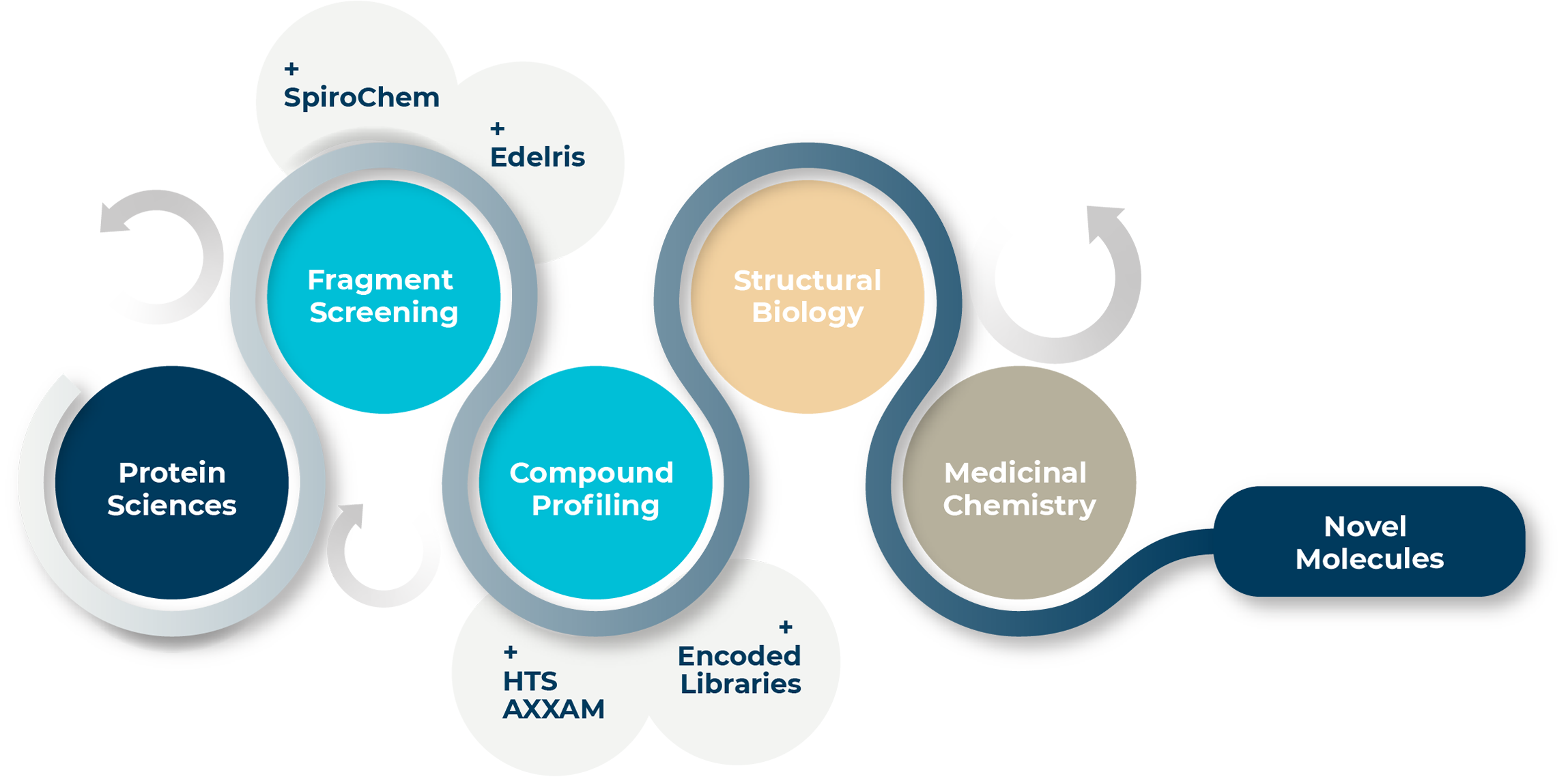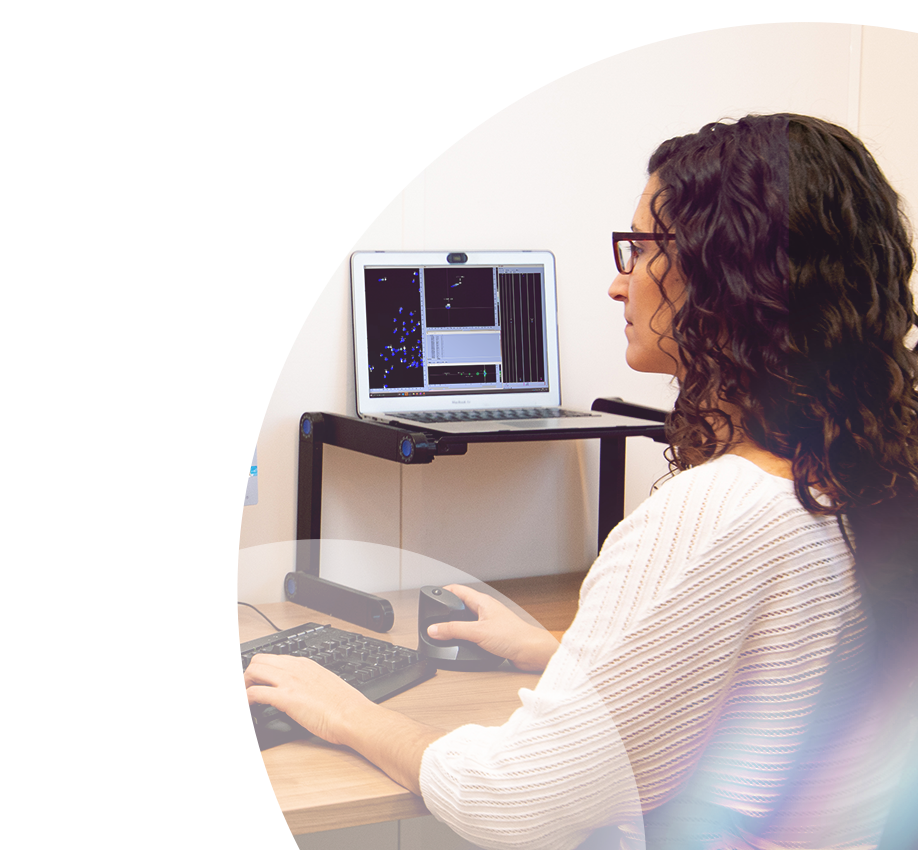
Capabilities
Since the establishment of ZoBio, we have built unrivaled expertise and skills to tackle the most challenging problems. We can drive your Drug Discovery campaigns from Gene-to-Lead using our unique, biophysics-based discovery engine. Your research will benefit from the full extent of this scientific expertise and technical capabilities.

Contact us for more information on how we can help your projects to succeed!
Protein Sciences
We know that successful projects are based on high-quality proteins with well-understood behavior. This starting point enables all downstream activities.
Our approach combines the exploration of different functional variants and built-in quality control procedures to ensure highly-pure, active and well-behaved proteins that meet the requirements imposed by biophysical and biochemical assays and structural biology. Multiple, proprietary expression vectors and access to both bacterial and human systems maximizes the chance of success.


Fragment Screening and Compound Profiling
We develop biophysical and biochemical assays for fragment screening and subsequent orthogonal validation of fragment hits. The assays are painstakingly optimized to reliably detect the typically weak interactions between a protein and fragments.
Each project and each protein will have specific requirements that we can address with the full suite of technologies and methodologies accessible to us in house. Key to our philosophy is the concept of orthogonality, so that we can unambiguously confirm productive interactions between compounds and a protein. For this we make use of our proprietary Target Immobilized NMR Screening technology (TINS), as well as Surface Plasmon Resonance (SPR) and a variety of biochemical assays using different optical readouts. Through the way we implement these assays, we can determine, or even select, the mechanism of action of compounds.
Structural Biology
We need to obtain structures of protein–ligand complexes to most efficiently evolve fragments into leads using structure-based design.
Our unique combination of NMR spectroscopy and X-ray crystallography is synergistic in obtaining this crucial structural information. Crystallography is the priority due to its advantages in resolution and throughput. Yet NMR can readily provide low-resolution binding information that can be extremely valuable in the early stages of fragment evolution, where X-ray crystallography is often most challenging. By using information from NMR, our X-ray crystallography is better adapted to the unique challenges posed by fragments. Where crystallography proves impossible, NMR may offer an alternative route to high resolution structural information.


Medicinal Chemistry
Success in the early stage of fragment-based drug discovery is determined by screening the right compound collection and effective orthogonal confirmation of fragment hits. At ZoBio each fragment is carefully selected, resulting in a diverse library of well-behaved and synthetically tractable fragments. We traverse the gulf between low affinity fragment hits and functional binders with a cellular readout by integrating and interpreting biophysical, biochemical and structural data from assay cascades tailored to the specific needs of your project. Our library has delivered progressable hit matter against more than 120 targets over the past 20 years and our fragment evolution projects provide orthogonally validated, diverse and tractable starting points for hit to lead projects.